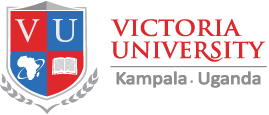Quick Facts
Credential
Diploma
Delivery Options:
Both On-Campus and Online - Some of your Classes will be in-person, on campus and some will be done online.
Duration: 2 Years
With a typical full-time course load, this programme will take 2 Years to complete.
Language of instruction
english
Admission Requirements
Five (5) passes of Ordinary level subjects including English and Mathematics or any Qualification / experience judged to be the equivalent to the above and UACE Advanced level with at least 2 principal passes in relevant subjects.
Certificate: Must possess a Class I (Distinction), or Class II (Credit) diploma in relevant areas of Tourism and Hospitality Management from a recognised institution.
Mature Age- this must state that a person must be 25 years of age and above and must have sat entry exams from a recognized Centre. NCHE recognizes the following institutions’ mature age examinations: Makerere University, Gulu University, Islamic University in Uganda, Mbale Mbarara University of Science and Technology. The eligible candidate must have got two principal passes at A ‘level in relevant subjects and 5 passes at Level. They should have been obtained at the same sitting not consecutive sittings.
x
What you will Learn
Programme Learning Outcomes
At the end of the Tourism and Hospitality Management programme, the learners are expected to:
1. Plan, design and effectively manage itineraries and other tourism products and facilities.
2. Communicate in at least two international languages and effectively guide tourists.
3. Examine local, regional and international tourism trends and policies for sustainable tourism resource management and promotion.
4. Have sound management and entrepreneurial skills for self-reliance in the tourism and hospitality industry.
5. Describe and explain a range of relevant concepts, theories and models to the solution of problems within Tourism and Hospitality.
6. Describe and identify management decisions in an international tourism and hospitality context.
7. Demonstrate the ability to apply a range of academic and intellectual skills relevant to level four study including, information-gathering, analysis and problem identification.
8. Demonstrate the use of communication and organization skills and the ability to work with others.
9. Develop your own learning with guided support to explore a wide variety of learning sources and opportunities
10. Compare and contrast a range of relevant concepts, theories and models to the solution of problems within Tourism Hospitality.
11. Analyze and discuss tactical management decisions in an international tourism and hospitality context.
12. Demonstrate the ability to apply a range of academic and intellectual skills relevant to level five study including, information-gathering, problem-solving, analysis, and evaluation.
13. Demonstrate the effective use of communication and organization skills and the ability to work with others.
14. Apply a range of relevant concepts, theories and models to the solution of problems within Tourism and Hospitality.
15. Synthesize and evaluate strategic and tactical management decisions in an international tourism and hospitality context.
16. Critically evaluate Tourism and Hospitality Management thinking through an extended piece of Research, Cognitive and Thinking Skills
Career Opportunities
A Diploma in Tourism and Hospitality Management opens the door to a wide range of exciting and dynamic career opportunities. This field is known for its diversity, offering roles that combine customer service, business management, and creativity. Here are some of the potential career paths you might consider:
1. Hotel Management
Hotel Manager: Oversee hotel operations to ensure guest satisfaction and optimal business performance.
Front Office Manager: Manage the front desk team to provide excellent customer service and handle guest relations.
2. Food and Beverage Services
Restaurant Manager: Run a restaurant efficiently, focusing on food quality, service, and financial management.
Catering Manager: Plan, organize, and manage catering operations for events and functions.
3. Travel and Tourism
Travel Agent: Plan and sell transportation, accommodations, insurance, and other travel services.
Tour Operator: Create and sell package tours to various destinations.
4. Event Management
Event Planner: Design and organize events such as weddings, corporate meetings, and conventions to meet client expectations.
Conference Coordinator: Specialize in planning and executing conferences, ensuring all details are managed effectively.
5. Customer Service
Guest Relations Manager: Ensure guests have a positive experience by addressing their needs and resolving any issues.
Concierge: Provide guests with personalized services, from restaurant reservations to travel arrangements.
6. Sales and Marketing
Sales Manager: Develop strategies to increase sales and revenue within the hospitality sector.
Marketing Coordinator: Promote tourism and hospitality services through various marketing channels.
7. Human Resources
HR Manager: Handle recruitment, training, and employee relations within a hospitality organization.
8. Airline and Cruise Operations
Flight Attendant: Provide care and ensure the safety of passengers aboard flights.
Cruise Ship Staff: Work in various roles on a cruise ship, from entertainment to guest services.
9. Adventure Tourism
Adventure Tour Guide: Lead and manage outdoor activities and tours, such as hiking, kayaking, and biking.
10. Cultural and Heritage Tourism
Museum Manager: Oversee the operations of a museum, including exhibits, staff, and public engagement.
Heritage Site Manager: Manage historical sites, ensuring they are preserved and accessible to the public.
This diploma equips you with a blend of practical skills and theoretical knowledge, preparing you for a successful career in the vibrant world of tourism and hospitality. Whether you're passionate about travel, food, or providing exceptional customer experiences, there's a niche for you in this global industry.
Tuition & Fees
The tuition and fee amounts are estimates based on current academic year's rates. For financial planning purposes, please use these totals as an approximate estimate of your costs. Actual fees may vary by term and enrolment activities.
Download
